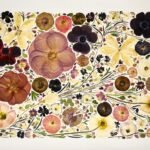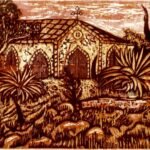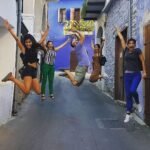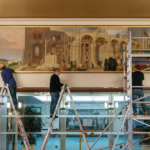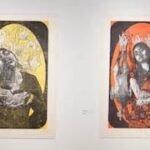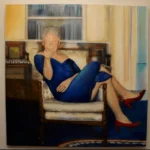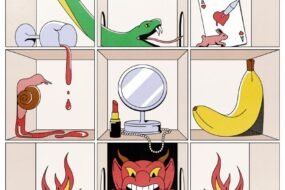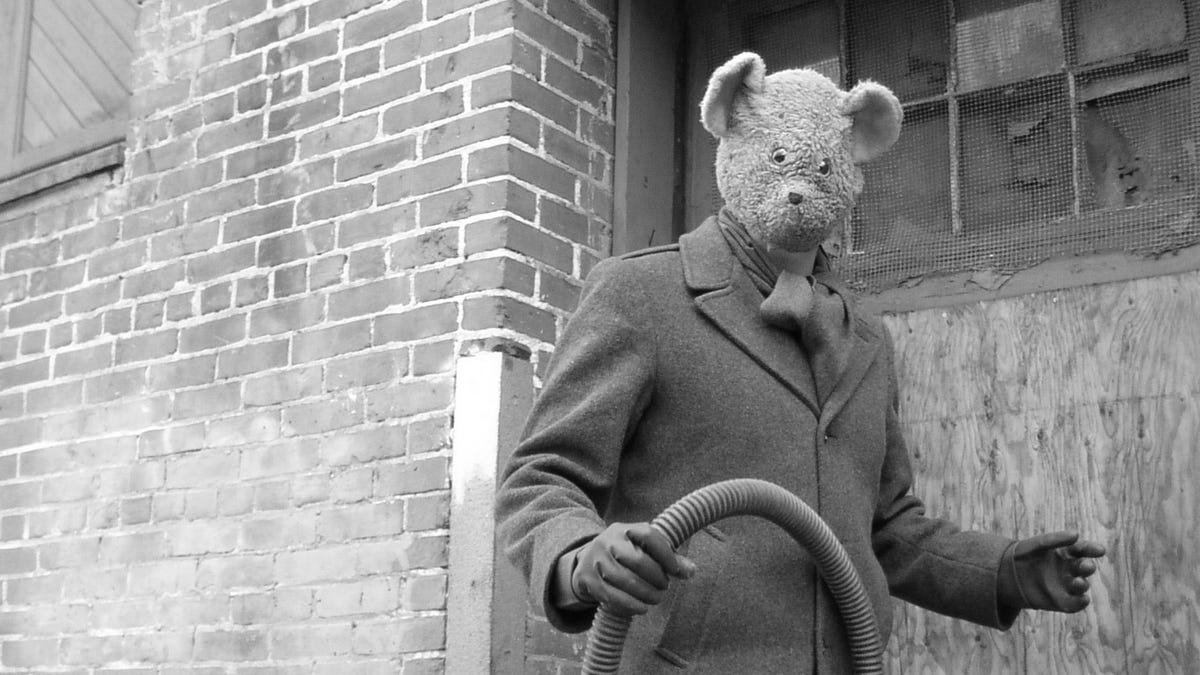
For many artists, inspiration comes both from the world around them, and the world within. Hans Rickheit is such an artist. Known for cartoons and graphic novels, Rickheit is acclaimed for works such as “The Squirrel Machine,”published in 2009 by Fantagraphics, and “Cochlea & Eustachia Delia,” and settings evoking the Victorian era. In 2001, his work, “CHLOE,” won a grant from the Xeric Foundation, a private nonprofit that provided awards to self-publising creatives. His artistic outfit is Chrome Fetus Comix, which appeared at the Worcester Punk Rock Flea Market held July 26 at Mission Dispensary Worcester.
Many of his creative works are also available in prints. Rickheit will have a booth at the next Worcester Punk Rock Flea Market, set for Oct. 16, also at Mission Dispensary. Not coincidentally, Rickheit was finishing up a flyer for the flea market when he took time to answer some questions.
Rickheit spoke about the nature of his art, and why he believes Central Massachusetts needs weird art, and what weird art looks like to him.
For those who don’t know, please explain a little about yourself, and the art that you do.
Well, mostly, I am an underground cartoonist, and I’ve been doing surrealist comic books for 30 to 40 years, as long as I can remember drawing comics.
What would be an example of a contemporary kind of your comic book art?
When I think of surreal artist, I think of irregular, unconventional writing, stream-of-consciousness imagery, and that kind of stuff. Just, when I draw the comics, they are not propelled by normal narratives. There is nothing wrong with a normal narrative. I’m just not as interested in normative ones … I’m more interested in other things, I guess, propelled by an imagery, I guess.
Tell me about your art in all this.
I spent most of my time at my drawing table, scribbling away. I’ve had “real” jobs, but presently, just comic book drawing, mostly comics. I do some painting.
Do you have a favorite work of yours?
“The Squirrel Machine,” (published by Eris,) it’s a graphic novel with 180 pages, thereabouts, and has a straight narrative, evil, semi-straight. It’s about two brothers growing up in a 19th-century New England town. They’re artists, but they get into a lot of trouble.
What are some things you do to promote your work?
Pretty much everything. This interview, for one thing. I do promote my books online, and all the social media stuff, and various comic book stores. I have been attending art fairs and things … small town art fairs, there is not enough weird art, and I feel like it’s my duty to represent. I think Central Massachusetts needs weird art.
What does that mean for you, and why do you think our area needs more of it?
If everyone does what’s safe, and normal and accepted, and nobody challenges the internal aesthetics, that would be pretty boring to me. I think my favorite weird artist is my longtime friend, (Edgar Stephen Curo). He does this thing called, “E.M.P.I.R.E. Snafu Restoration Project. He does these constructions built out of random finds: dead animals, broken toys, welding. (Animals are not harmed, but found, according to Rickheit.)
Have you ever created anything and said, ‘Holy lord, how did that come out of me?’
No, it’s pretty much all part of the process. If it doesn’t tweak me, then I’m not that engaged with it. I guess I am putting myself off, but then, it’s subjective.
Is there any project you would like to do in the future?
I’d like to do some animation, but it’s a lot of work. I would probably do better to do some artwork.
You mentioned the Punk Rock Flea Market in October. Is that a place to find community?
Find community, similar ideas, similar world views. I used to be a part of one when I was in Cambridge, when I used to l ive there. In Central Massachusetts, there is not as much going on. I’m dipping into all these things, trying to find more of a mindset, like the Punk Rock Flea Market. Maybe after reading this article, some people would connect.

